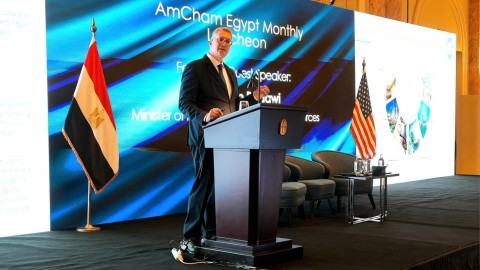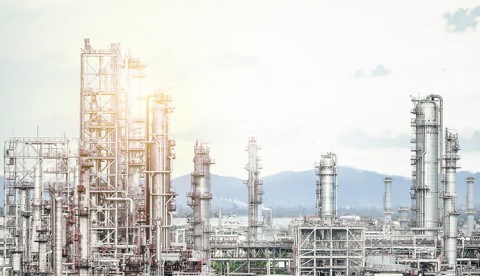Egypt is strategically positioning itself as a regional energy hub by focusing on various initiatives in the energy sector, including liquified natural gas (LNG) exports, Suez Canal expansion, and investments in renewable energy. Accordingly, Egypt is addressing several paths that underscore its commitment to sustainable energy practices, energy security, and its aspiration to become a pivotal player in the regional and global energy landscape.
Egypt’s LNG Hub Aspirations
In the past years, and during the 2022 UN Climate Change Conference (COP27), Egypt has been promoting the development of natural gas, alongside renewables, as a safe fuel necessary for energy transition. Accordingly, the country has been posing as a significant LNG exporter and LNG provider after the Russian attack on Ukraine. However, due to the current unrest in the Red Sea, which impacts the Suez Canal, Egypt’s LNG exports have been declining. From the beginning of 2024 until Feb 9th, Egypt has only managed to export 270,000 metric tons (mt) of LNG, reflecting a substantial drop of 64% compared to the same period last year, according to S&P Global analysts. In 2023, Egypt’s LNG exports recorded 3.7 million mt, according to S&P Global.
However, Egypt has the potential to become a leading LNG trade hub in the region, thanks to its significant location and advanced infrastructure. Egypt possesses two operational liquefaction plants; Damietta and Idku on its Mediterranean coast. These plants allow Egypt to process and export natural gas. Meanwhile, in June 2023, Egypt joined Jordan into a collaboration agreement that enables the former to use the floating storage regasification unit (FSRU) at the Sheikh Sabah port in Aqaba. The agreement aims to lower the operational costs of LNG storage and regasification, while also ensuring secure gas supplies for both countries. Securing infrastructure for both liquification and regasification supports Egypt’s potential as a natural gas/ LNG regional trading hub.
Suez Canal: A Vital Energy Corridor
The recent expansion of the Suez Canal involved widening and deepening a significant portion of the waterway. This has had a twofold impact on energy transportation, particularly oil and gas. In 2014, the Suez Canal had a total of 614 LNG ships, carrying around 66.89 million net tons. In comparison, the year 2019 had a total of 750 LNG ships, carrying about 84.7 million net tons, according to the Suez Canal Authority (SCA) website. Additionally, Suez Canal traffic reached 5.023 billion tons in fiscal year 2018/19 and 5.451 billion tons in 2022/23, according to the Central Bank of Egypt (CBE).
In August 2023, the first container ship refueling operation with green fuel (methanol) took place in East Port Said Port, for the container ship “Maersk”, which is the first container ship in the world to operate on green fuel. During the same month, the SCA announced the start of operations to supply the shipping line’s ships with green methanol. This comes in line with SCA’s new sustainable strategy to make the Suez Canal a green canal by 2030, with the aim of supporting maritime transport to become more environmentally friendly, according to the Cabinet’s Information and Decision Support Center (IDSC).
Embracing Renewable Energy
Situated at the crossroads of Africa, Europe, and Asia, Egypt has the potential to become a regional hub for renewable energy production and export, especially green hydrogen. Egypt is emerging as a significant player in the renewable energy sector, driven by its abundant resources and ambitious targets. The country boasts exceptional solar irradiation levels and strong wind potential, making it ideal for solar and wind power generation.
Egypt has set ambitious renewable energy targets, updating its goals in 2023, aiming to generate electricity from renewables to reach up to 60% by 2030, Minister of Petroleum and Mineral Resources, Tarek El Molla, stated earlier in 2024. The Egyptian government actively supports renewable energy development through favorable policies, feed-in tariffs, and initiatives to streamline project approvals.
Egypt’s strategic vision for the energy sector is multifaceted, encompassing natural gas exports, a revitalized Suez Canal, and a burgeoning renewable energy industry. This multi-pronged approach positions Egypt to become a pivotal player in the regional and global energy landscape. As it navigates the complexities of the global energy landscape, Egypt’s commitment to a diversified and sustainable approach will be key to achieving its long-term energy goals.








